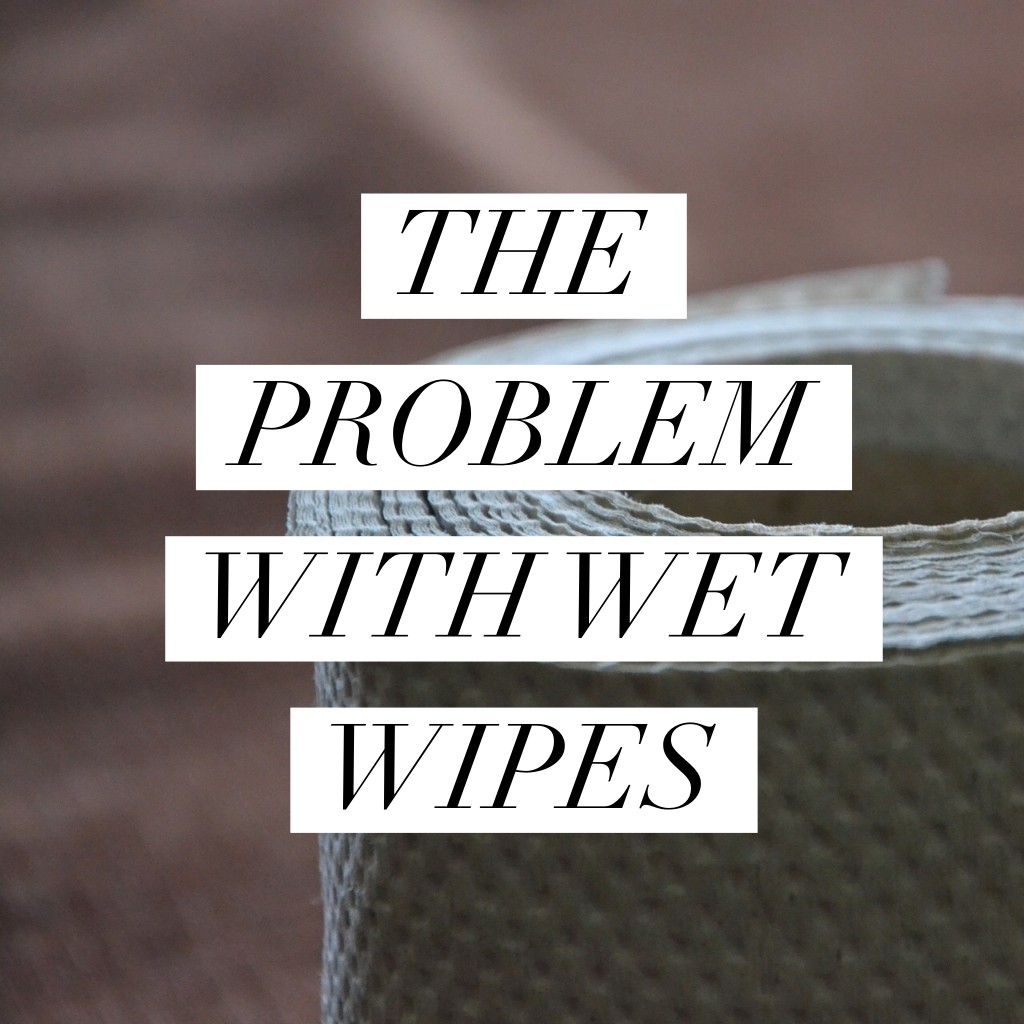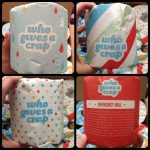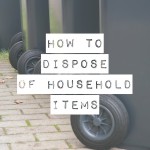So called ‘flushable’ wet wipes have been getting a lot of press in recent weeks so today I thought I’d explore the issue a little further and provide you with some info on the problem with wet wipes, and what your alternatives are.

First things first, what are we talking about when we refer to wet wipes?
There are lots of different wipes on the market, from makeup removing wipes, to hand and body wipes, and the ones I’ll mainly be focussing on today – the so called ‘flushable’ wipes used in place of toilet paper.
It’s worth noting though that one-use wipes no matter what their purpose are problematic for the environment as they are responsible for a huge amount of waste. They can take a really long time to break down and are often full of undesirable ingredients. I know they can be super convenient, but where possible it is best to choose reusable options, such as a microfibre cloth to remove your makeup. Obviously sometimes that’s just not possible, so in those instances I’d recommend choosing an eco-friendly, biodegradable option. Wotnot are a great option, and they do both makeup removing wipes and baby wipes so you can still have your convenience but without creating quite so much waste!
What is the problem with flushable wet wipes?
In recent years there has been a rise in the use of wipes in place of toilet paper, which are marketed as ‘flushable’ but in many cases really shouldn’t be going anywhere near our drainage system. They are mostly made out of synthetic materials which take years to break down, so in the meantime they are sitting within our sewage system, causing expensive blockages.
A study in Sydney late in 2014 found that almost 1 million people (out of Sydney’s population of 4.6 million) were flushing wipes down the toilet, resulting in 1000 tonnes of wipes having to be removed from the pipes in the last two years. That comes at an enormous cost, but is also resulting in a huge amount of additional waste that then needs to be added to our landfill. Some wipes make it through the system without getting clogged, but as they are not dissolving they are ending up in our waterways, causing pollution and impacting on our aquatic plant and animal species.
What are the alternatives?
As I mentioned earlier, there are biodegradable options for face and baby wipes from eco-friendly companies like Wotnot, although it’s best to avoid single-use options whenever possible.
Some ‘flushable’ wipes on the market are being marketed as easier ways to clean your toilet, and whilst that might seem to be high on the convenience factor it is also an expensive way to go about cleaning your toilet. DIY cleaning solutions are much kinder on both your wallet and the environment as they not only don’t create waste but they also reduce the amount of chemicals being brought into your home as well.
Whilst the wet wipes that are being promoted as an alternative to toilet paper are said to be more hygienic and have an improved texture, there is no real evidence that they do improve hygiene of users. They’re also significantly more expensive than traditional toilet paper, so they cause problems on so many levels. There’s really no reason to turn away from good ol’ toilet paper, and my company of choice is Who Gives A Crap. Their toilet paper is made from recycled paper (but isn’t all scratchy!) and they donate 50% of their profits to Water Aid which builds toilets and improves sanitation in developing companies. Can’t beat that really!






Tahlia Meredith
April 6, 2015 at 8:31 pm (9 years ago)Informative as always Liz! So does that mean if a wipe says it’s biodegradable it could actually mean that it’ll really only disintegrate after, like, a bajillion years?
Tahlia Meredith recently posted…My top 5 apps (that aren’t for social media)
I Spy Plum Pie (admin)
April 10, 2015 at 11:58 am (9 years ago)Biodegradable is one of those terms that is hard to legislate on because eventually everything will biodegrade, so it’s hard to know just from the packaging. Putting wipes in the bin rather than flushing them is a better option though, at least that way they go to directly to landfill rather than clogging up the waterways (although that’s still not great either!).
Happy Hiller
January 12, 2021 at 12:59 am (3 years ago)Thank you for the reminder!